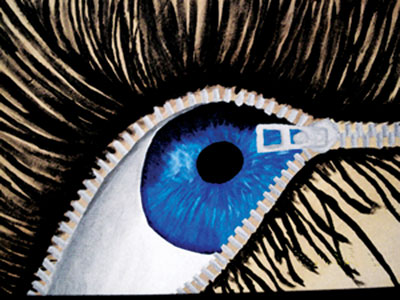All Nonfiction
- Bullying
- Books
- Academic
- Author Interviews
- Celebrity interviews
- College Articles
- College Essays
- Educator of the Year
- Heroes
- Interviews
- Memoir
- Personal Experience
- Sports
- Travel & Culture
All Opinions
- Bullying
- Current Events / Politics
- Discrimination
- Drugs / Alcohol / Smoking
- Entertainment / Celebrities
- Environment
- Love / Relationships
- Movies / Music / TV
- Pop Culture / Trends
- School / College
- Social Issues / Civics
- Spirituality / Religion
- Sports / Hobbies
All Hot Topics
- Bullying
- Community Service
- Environment
- Health
- Letters to the Editor
- Pride & Prejudice
- What Matters
- Back
Summer Guide
- Program Links
- Program Reviews
- Back
College Guide
- College Links
- College Reviews
- College Essays
- College Articles
- Back
Media Is the New Meth
Media is the new meth that people inject into their brains. A couple tastes’ of the “drug”, and people instantly get hooked. That’s what media does to you! It also gives people the idea of false hope or hopelessness. I think that all media “addicts” should be treated right away.
“ Internet addiction was first proposed as a psychiatric disorder in 1996, soon after the internet entered our everyday lives” (www.cbsnews.com). You see, addiction to media isn’t a new thing, it’s been a thing for almost two decades now. The way that some people use Instagram, Snapchat or Facebook, is really crazy. Instead of hanging outside, enjoying the great outdoors, all people do these days is spend time on their electronics or watch movies. People spend more time looking at a screen than talking or communicating with their own family members. One day, without people even realizing it, these “hobbies” will soon become an actual addiction.
Too much media makes people lazy, I would know because I, myself, noticed that I was getting more and more lazy (i’m a frequent addict). But, what most people don’t understand is, is how real an addiction to media is. Jason Thibeault was once a real addict. He compared his addiction to drinking water, meaning he always had to have it. Getting “likes” on Facebook and Instagram appeared to stimulate Jason’s brain all the time. It appears to stimulate everyone else’s brain also. According to CBS News, there’s actually an estimation of 1 percent, of people, worldwide, who use the internet, that needs treatment.
Although media has it’s ways of being good, as in spreading news around, or involving fun on certain websites, it could also lead into some bad things. Some news could be wrong and “fun” on certain websites could lead to cyberbullying. If people could just learn to put down their electronic, and communicate or do something with others, no one would get hurt or need treatment for media. Parents who have younger ones can reduce the negative influence of media on young people by, limiting and monitoring the programs their children watch. “Injecting” a little media into our brains is okay, as long as we don’t “inject” too much everyday.

Similar Articles
JOIN THE DISCUSSION
This article has 0 comments.

It's mainly about addiction.